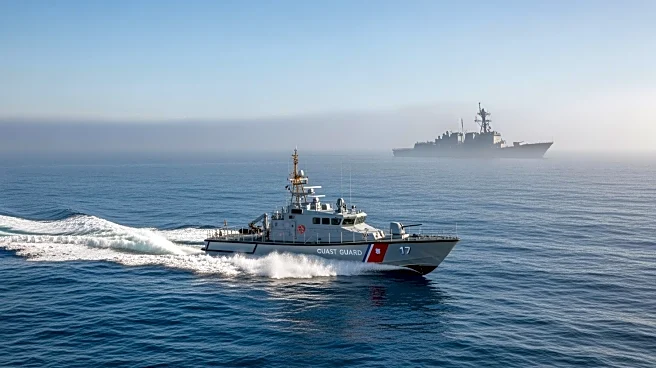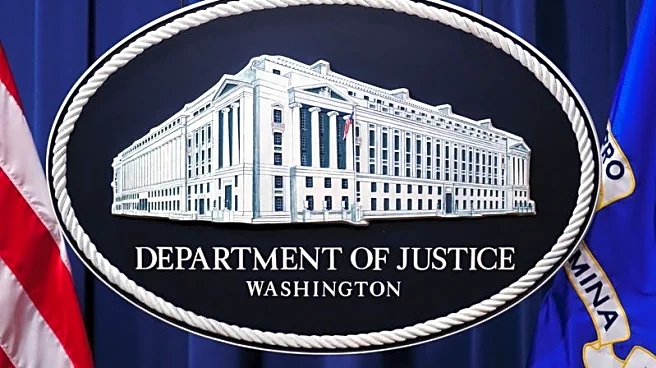What's Happening?
The United States Coast Guard has reported the presence of a Russian naval ship, the Kareliya, approximately 15 miles south of Oahu, near U.S. territorial waters. In response, the Coast Guard deployed an aircraft and cutter to monitor the ship's activities.
This action is in accordance with international law, which permits foreign military vessels to transit and conduct operations outside of other nations' territorial seas, extending up to 12 nautical miles from shore. The Coast Guard's efforts are aimed at ensuring maritime safety for U.S. ships operating in the region and supporting U.S. Homeland Defense efforts. The Russian Embassy in Washington has not yet commented on the situation.
Why It's Important?
The presence of a Russian naval ship near U.S. territorial waters is significant as it underscores ongoing geopolitical tensions and the importance of maritime security. The Coast Guard's monitoring activities are crucial for maintaining the safety of U.S. vessels and ensuring that international laws governing territorial waters are respected. This incident highlights the strategic importance of the Pacific region and the need for vigilance in protecting U.S. interests. The situation could impact diplomatic relations between the U.S. and Russia, especially if the Russian ship's activities are perceived as provocative.
What's Next?
The Coast Guard will likely continue to monitor the Russian ship's movements to ensure compliance with international maritime laws. Further diplomatic engagement may occur if the Russian Embassy responds or if the situation escalates. U.S. political leaders and defense officials may review and adjust maritime security protocols to address potential threats. Additionally, this incident could prompt discussions on international maritime law and the rights of foreign military vessels in proximity to U.S. waters.
Beyond the Headlines
This event may have broader implications for international maritime law and the balance of power in the Pacific region. It raises questions about the legal frameworks governing naval operations near territorial waters and the potential for misinterpretation or conflict. The incident could also influence future military strategies and alliances, as nations seek to protect their interests in increasingly contested waters.















